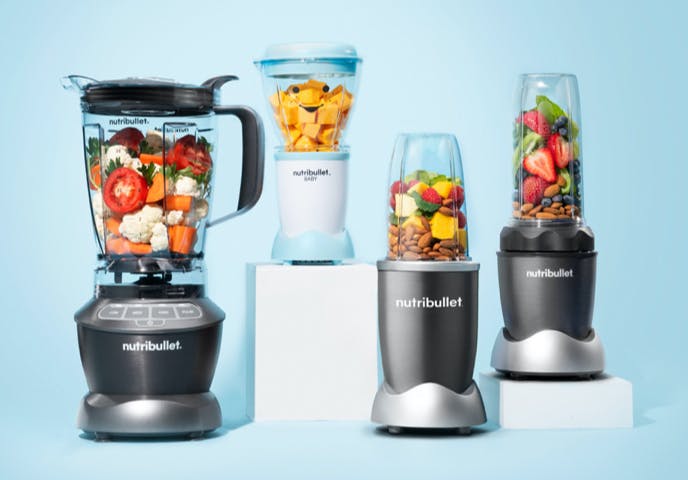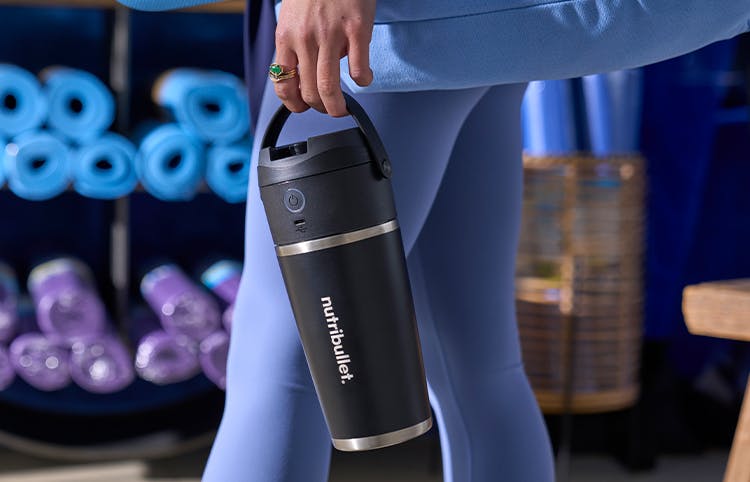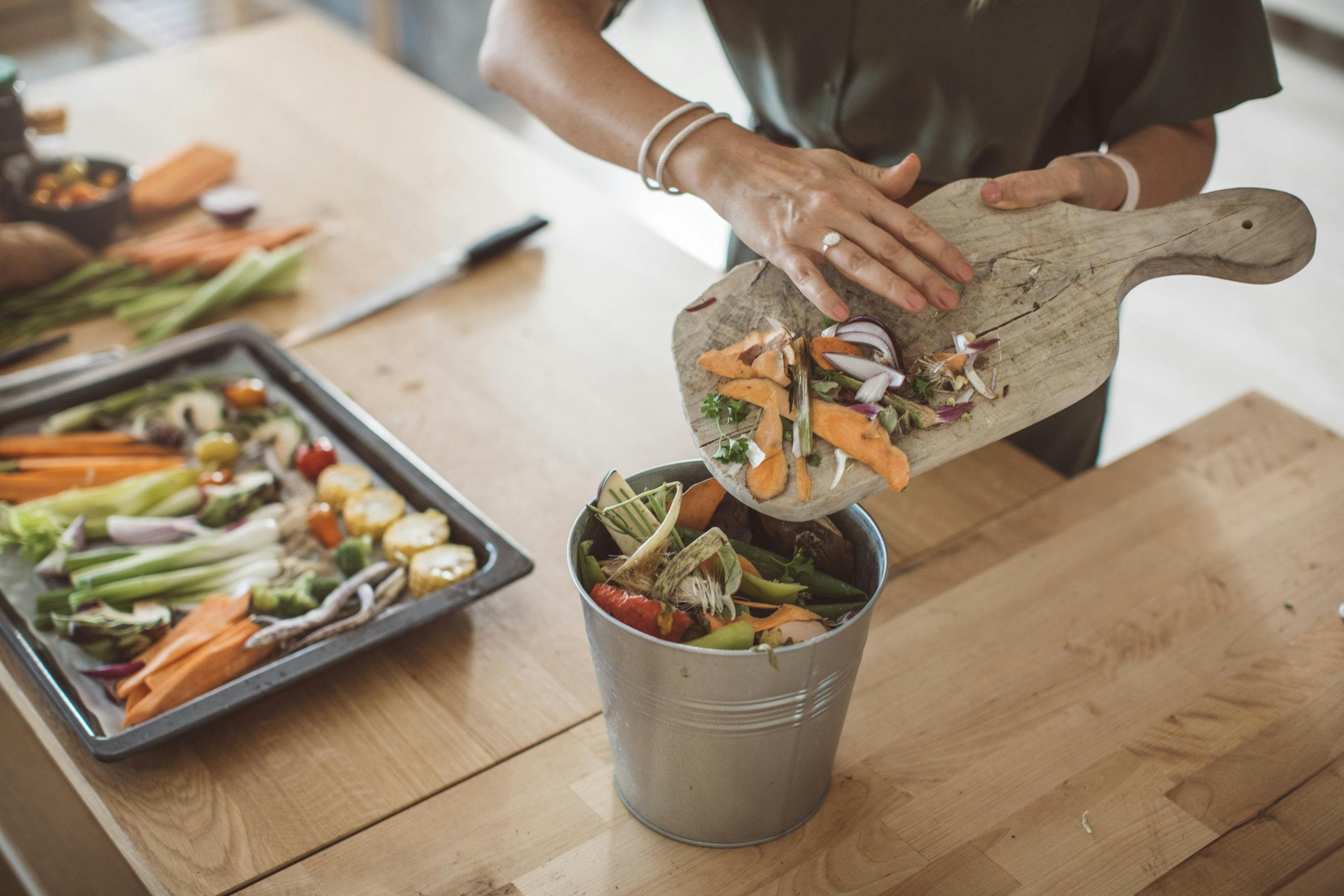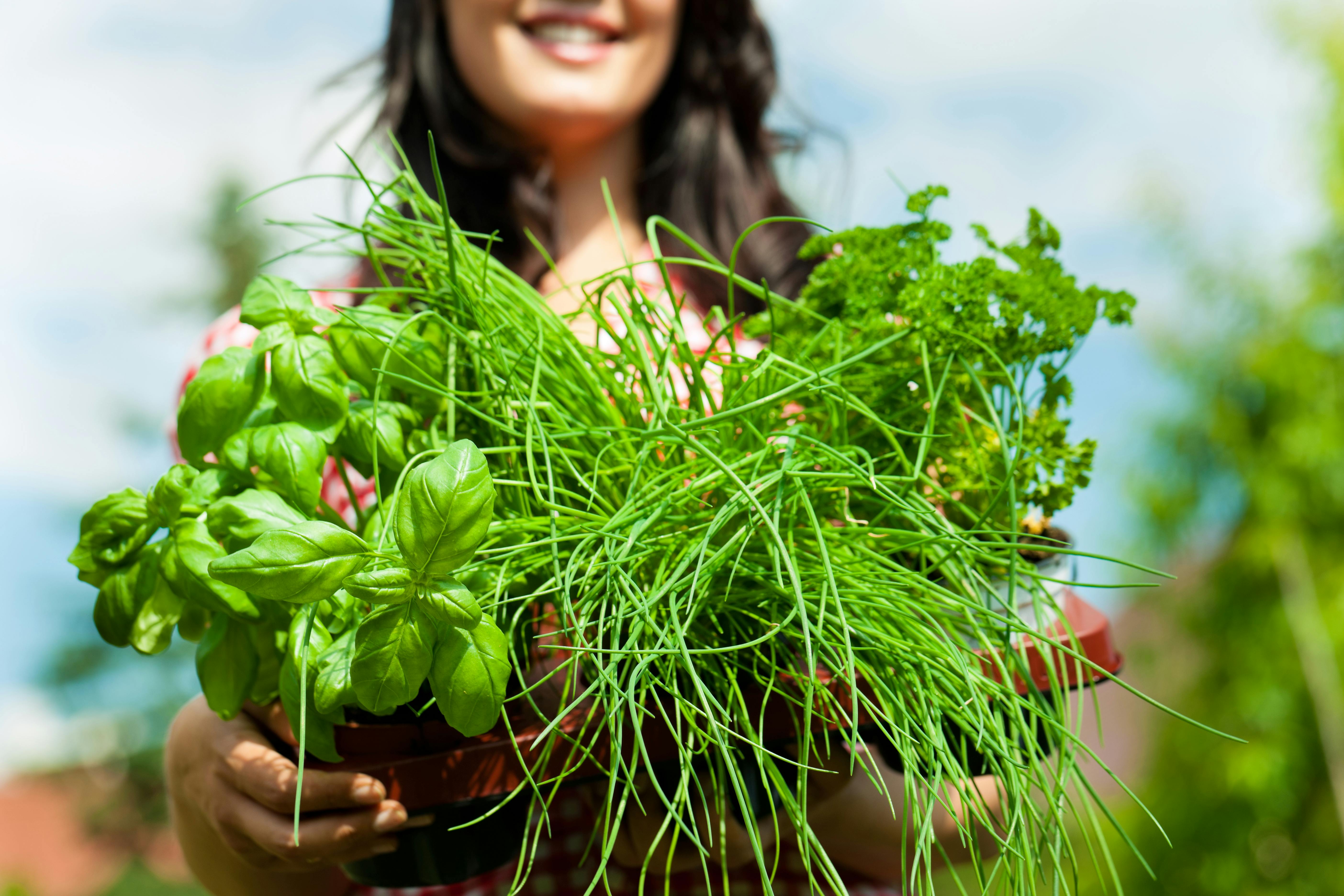We have been conditioned to think that bacteria are bad, dirt is bad, and everything must be sanitized, but this is only hurting our health in the long run. Our bodies are made up of bacteria. In fact, bacterial DNA outnumbers human DNA 10:1! Your health starts in your gut, so fueling it with the right bacteria is crucial for every element of health. And the best way to get these healthy bacteria is by eating fermented foods.
What is Fermentation?
Fermentation is the process of bacteria breaking down sugars into acids, specifically lactic acid, which creates more strains of beneficial bacteria and enzymes.
Fermentation in Action
Fermentation requires several basic ingredients: bacteria, sugar, salt and an environment without oxygen. When you have these ingredients, the fermentation process can begin! The recipe at the end focuses on organic vegetables, specifically cabbage, which contains its own strains of bacteria. You don’t necessarily have to add a probiotic to this dish, but it helps speed up the fermentation process. Kimchi is another type of fermented vegetable that doesn’t require the addition of probiotics to begin the fermentation process.
Sugar provides fuel or “food” for the probiotics. Natural sugars from apples feed probiotics and allow them to multiply and thrive. Cabbage contains its own natural sugars that will fuel probiotics, but without the addition of the apple, the fermentation process will be much slower. Salt helps create an environment that promotes the growth of healthy bacteria and kills off unhealthy bacteria. In addition to salt, the lack of oxygen is crucial to ensure the right type of bacteria is growing.
6 Health Benefits of Fermentation
Now that you know the basics of fermentation, let’s look at why it’s so important for overall health and why you should take 15 minutes out of your day to ferment veggies! My challenge to you, should you chose to accept it, is to harness your inner scientist, get out your beakers and mason jars and start culturing your own bacterial family.
First, let’s take a look at how healthy bacteria, or healthy gut flora, can impact different areas of health.
- Regularity – Think about your poop. No, I mean really think about it. Are you going to the bathroom on a daily basis? Is it hard, formed, loose, or incomplete? Poop is a window into your health and the majority of Americans have compromised digestion and elimination. According to the U.S. Department of Health and Human Services, 70 million people are affected by digestive disorders. Guess what? Fermented foods can help improve elimination and ease digestive discomfort. No more straining, feeling incomplete, or bloating – just smooth sailing ahead!
- Fewer Sugar Cravings – What? Fermented foods can actually regulate and impact sugar cravings? The answer is yes! Throughout our lives, we’re exposed to stress, imbalanced diet (excess sugar) and antibiotics, all of which contribute to the demise of our healthy gut flora, or the beneficial bacteria that live in our gut. Over time, this creates an opportunity for pathogenic bacteria (bad bacteria), yeast and fungus to get nice and comfortable in their new home (our guts). And guess what they eat? Sugar. When imbalanced gut flora exists, it’s often linked to an increase in sugar cravings. Eating fermented foods, changing your diet and decreasing stress are just a couple ways to increase the healthy bacteria in your gut, crowding out and killing off the bad bacteria that are telling our bodies to eat more sugar.
- Improved Mood – The mind-gut connection is currently one of the most fascinating areas of research. Bacteria in the gut create neural pathways that signal and communicate directly with the brain, telling the body how to react and how to feel. From a young age, we start to lay down these pathways and build emotional responses to certain situations and foods. A recent study found a connection between gut bacteria and GABA, a feel-good hormone. Lactobacillus rhamnosus (gut bacteria) can interact and alter levels of GABA in the brain which are directly linked to anxiety and stress. Healthy gut flora is linked with decreased levels of anxiety, stress and even depression. There’s more research being done to look at how gut bacteria can play a role in the treatment of mental disease!
- Enhanced Digestion – A byproduct of fermentation is not only healthy bacteria but also enzymes. Enzymes assist with the breakdown of larger food particles, allowing key nutrients to be absorbed and the remainder to be easily eliminated. Have you ever noticed that you get really bloated after a meal or have bloating that gets worse as the day goes on? Not having adequate enzymes is one of the reasons. Without adequate enzymes, your food doesn’t break down fully and starts to ferment. Fermentation outside the body is good. Fermentation inside the body is not good, as a byproduct of fermentation is gas – AKA bloating. People with impaired digestion have an easier time digesting fermented foods that help fill the gut with healthy bacteria and, more importantly, enzymes.
- Better than a Probiotic – Donna Gates recommends at least two tablespoons of fermented foods daily. Eating fermented foods gives your body live cultures, whereas probiotics have a limited shelf life. The number of bacterial cultures you get from a probiotic decreases each week they sit on your shelf. Fermented foods are alive and continually growing, so the beneficial bacterial count is much higher.
- Improved Immunity – Your immune system is housed in your gut. Think about it. Every day, you are exposing your body to the external environment through the foods you eat. Your gut is responsible for what gets to pass through the lining of the intestines into the bloodstream and what gets moved along for elimination. It creates the first line of defense for when something isn’t right and sounds the alarm, i.e. vomiting or diarrhea. The more diverse and prolific your gut flora, the better task force you have in place to combat environmental criminals.
A healthier you starts with a healthy gut. Some of our favorite fermented foods include kimchi, sauerkraut, and tempeh. Add these foods to your diet, which not only provides a wealth of healthy bacteria but also adds a flavorful texture to your meals!



















